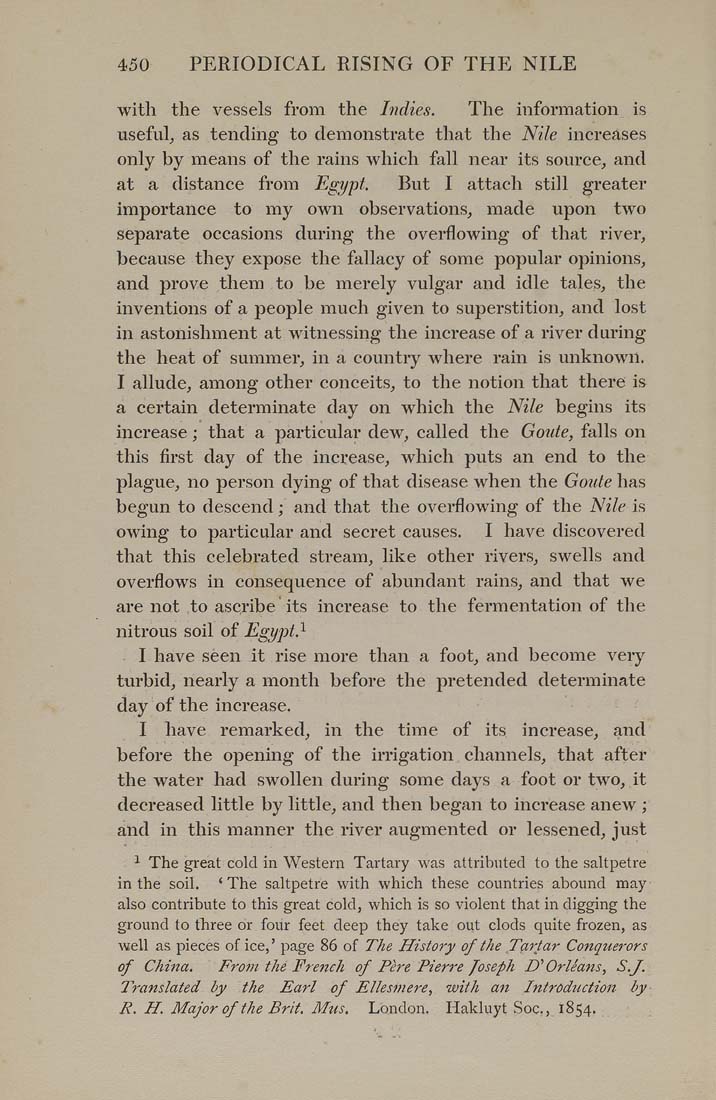450 PERIODICAL RISING OF THE NILE
with the vessels from the Indies. The information is
useful, as tending to demonstrate that the Nile increases
only by means of the rains which fall near its source, and
at a distance from Egypt. But I attach still greater
importance to my own observations, made upon two
separate occasions during the overflowing of that river,
because they expose the fallacy of some popular opinions,
and prove them to be merely vulgar and idle tales, the
inventions of a people much given to superstition, and lost
in astonishment at witnessing the increase of a river during
the heat of summer, in a countiy where rain is unknown.
I allude, among other conceits, to the notion that there is
a certain determinate day on which the Nile begins its
increase; that a particular dew, called the Goute, falls on
this first day of the increase, which puts an end to the
plague, no person dying of that disease when the Goute has
begun to descend; and that the overflowing of the Nile is
owing to particular and secret causes. I have discovered
that this celebrated stream, like other rivers, swells and
overflows in consequence of abundant rains, and that we
are not to ascribe'its increase to the fermentation of the
nitrous soil of Egypt.^
I have seen it rise more than a foot, and become very
turbid, nearly a month before the pretended determinate
day of the increase.
I have remarked, in the time of its increase, and
before the opening of the irrigation channels, that after
the water had swollen during some days a foot or two, it
decreased little by little, and then began to increase anew ;
and in this manner the river augmented or lessened, just
^ The great cold in Western Tartary was attributed to the saltpetre
in the soil. 'The saltpetre with which these countries abound may
also contribute to this great cold, which is so violent that in digging the
ground to three or four feet deep they take out clods quite frozen, as
■well as pieces of ice,' page 86 of The History of the Tartar Conquerors
of China. From the French of Pere Pierre Joseph D'Orleans, S.J.
Translated by the Earl of Ellesmere, with an Introduction by
R. H. Major of the Brit. Mus. London. Hakluyt Soc, 1854.
|








